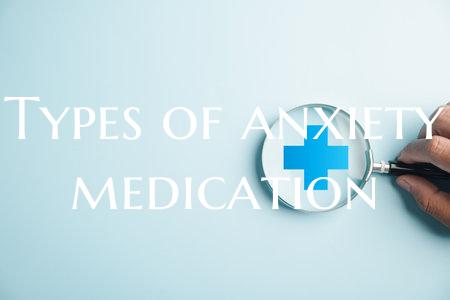
Types of anxiety medication
Introduction: Anxiety disorders are common mental health conditions that can significantly impact a person's daily life. While therapy and lifestyle changes can be effective in managing anxiety, medication is often used in conjunction with other treatments to help individuals cope with symptoms. Various types of anxiety medications are available, each with its own mechanisms of action and potential benefits. Understanding these medications can empower individuals to make informed decisions about their mental health care.
1. SSRIs (Selective Serotonin Reuptake Inhibitors): SSRIs are among the most commonly prescribed medications for anxiety disorders. These medications work by increasing the levels of serotonin in the brain, a neurotransmitter that plays a key role in regulating mood. Examples of SSRIs include sertraline (Zoloft), fluoxetine (Prozac), and escitalopram (Lexapro). SSRIs are typically well-tolerated and have fewer side effects compared to older classes of antidepressants.
2. SNRIs (Serotonin-Norepinephrine Reuptake Inhibitors): SNRIs are another class of medications used to treat anxiety disorders. These medications work by increasing the levels of serotonin and norepinephrine in the brain. SNRIs such as venlafaxine (Effexor) and duloxetine (Cymbalta) are often prescribed when individuals do not respond to SSRIs alone. SNRIs may be particularly helpful for individuals with both anxiety and depression.
3. Benzodiazepines: Benzodiazepines are a class of medications that act as central nervous system depressants. These drugs work by enhancing the effects of the neurotransmitter gamma-aminobutyric acid (GABA), which helps to reduce the activity of nerve cells in the brain. Examples of benzodiazepines include alprazolam (Xanax), clonazepam (Klonopin), and diazepam (Valium). Benzodiazepines are fast-acting and can provide rapid relief from acute anxiety symptoms, but they are generally recommended for short-term use due to the risk of tolerance and dependence.
4. Beta-Blockers: Beta-blockers are medications commonly used to treat high blood pressure and heart conditions, but they can also be prescribed for anxiety. These medications work by blocking the effects of adrenaline, which can help reduce physical symptoms of anxiety such as rapid heartbeat and trembling. Propranolol (Inderal) is a commonly used beta-blocker for anxiety, particularly for situational anxiety such as performance anxiety or public speaking.
5. Buspirone: Buspirone is a medication that acts as a serotonin agonist, meaning it stimulates serotonin receptors in the brain. Unlike benzodiazepines, buspirone does not cause sedation or dependence, making it a preferred option for some individuals with generalized anxiety disorder. Buspirone may take several weeks to reach full effectiveness, but it has a lower risk of side effects compared to other anxiety medications.
Conclusion: Choosing the right type of anxiety medication is a personal decision that should be made in consultation with a healthcare provider. It is essential to consider factors such as the specific symptoms of anxiety, potential side effects, and individual response to different medications. By understanding the various types of anxiety medication available, individuals can work with their healthcare providers to develop a treatment plan that best suits their needs and supports their mental health and well-being.